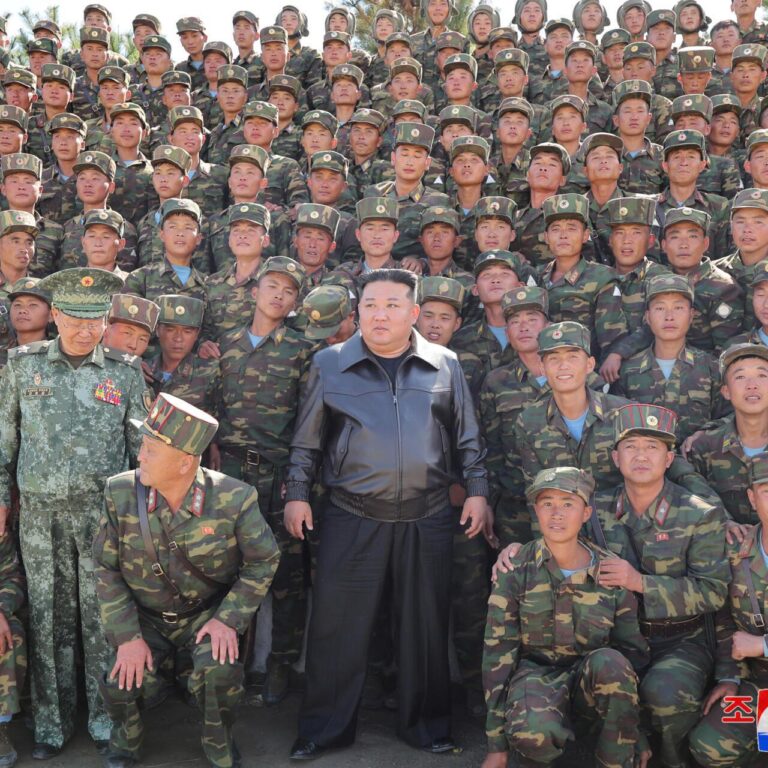North Korean military Losses in Ukraine: A Deepening Alliance with Russia
Recent intelligence from South Korea has unveiled a startling statistic regarding the ongoing conflict in Ukraine: around 4,700 North Korean soldiers have either been killed or injured while fighting alongside Russian troops. This alarming figure highlights the strengthening military relationship between North Korea and Russia amid the war,prompting concerns about its implications for both regional stability and global geopolitics. As these two nations strive to enhance their military capabilities in response to rising tensions with Western powers, the human toll of this partnership becomes increasingly evident. The assessment provided by South Korean officials and reported by ABC News offers insight into the broader dynamics influencing the situation in Ukraine, particularly as North Korea aligns itself more closely with Russia to pursue its strategic objectives.
North Korean Casualties: Implications for military Alliances
The revelation that approximately 4,700 North Korean troops have suffered casualties while supporting Russian forces raises significant concerns about the sustainability of military alliances. As these losses accumulate, questions arise regarding their long-term effects on North Korea’s military strength and political landscape. Analysts suggest that such a high level of commitment may reflect Pyongyang’s desperation to maintain ties with Moscow amidst increasing international isolation. Aligning with Russia could be seen as a tactical move aimed at fortifying its position against heightened tensions from the United States and allied nations.
Moreover, these reported casualties underscore potential risks for North Korea as it continues to provide military support abroad. the consequences of these losses include:
- Diminished Morale: Elevated casualty rates may negatively impact troop morale among existing personnel.
- Resource Depletion: Engaging militarily overseas could drain domestic resources essential for national progress.
- Political Consequences: The regime might face intensified scrutiny and dissent from citizens weary of prolonged conflict.
| status of Casualties | Total Soldiers Affected |
|---|---|
| Killed | 2,300 |
| Wounded | 2,400 |
Impact of North Korean Troop Involvement on Regional Security Dynamics
The active participation of North Korean soldiers in support of Russian efforts poses serious threats to regional security dynamics. With reports indicating around 4,700 soldiers either killed or wounded on foreign soil,this infusion into combat not only signifies a desperate alliance but also contributes to shifting geopolitical landscapes. Such cooperation raises alarms over normalizing military partnerships between rogue states like North Korea and Russia—potentially encouraging similar alignments among other nations facing international scrutiny.
This collaboration may also lead to increased aggressiveness within Kim Jong-un’s regime towards South Korea and the United States. Observers note that state media might portray these casualties positively as part of legitimizing Kim’s policies domestically—a strategy that could escalate militaristic rhetoric further afield leading to:
- A surge in joint military exercises by South Korea and allied forces;
- A reevaluation of defense strategies by japan and China;
- An uptick in diplomatic tensions globally as countries navigate responses effectively;
the prospect of an extended conflict involving North Korean forces threatens further destabilization within East Asia—underscoring an urgent need for proactive dialog among regional players aimed at countering emerging threats effectively.
Humanitarian Impact: Effects on Soldiers’ Families Back home
The ongoing war casts a long shadow over both soldiers deployed abroad and their families back home who are left grappling with dire consequences stemming from foreign engagements. Reports indicate that nearly 4,700 soldiers have been lost or injured while fighting alongside Russian forces; this staggering number reflects not only dire economic conditions but also social pressures compelling individuals into service through coercion or patriotism—all underlined by promises made regarding family sustenance back home.
The families affected face numerous humanitarian challenges exacerbated by an already fragile economy within north Korea including:
- Mental Health Struggles: Grief over loss coupled with anxiety concerning surviving members takes a toll on mental well-being.
- Financial hardship:The absence caused by loss intensifies economic struggles leading many households deeper into poverty.
- Social Stigmatization:Families often experience ostracism due political affiliations associated directly through soldier deployments.
| Category Impacted | Description | ||
|---|---|---|---|
| Losses | Approximately 4 ,700 affected | ||
| Poverty Increase | Families facing financial instability due absence | ||
| Mental Health Issues | (Psychological effects stemming from loss) | ||
| (Stigmatization faced) |
Looking Ahead: Navigating Complex Geopolitical Landscapes
The substantial losses incurred among deployed troops highlight intricate intersections present across global conflicts today . with nearly four thousand seven hundred casualties reported , implications extend far beyond battlefields raising critical inquiries surrounding strategic alliances formed during times like these . As developments unfold , it remains vital for stakeholders worldwide—including those monitoring East Asian affairs—to remain vigilant towards evolving situations ensuring stability prevails amidst growing uncertainties brought forth through warfare engagements .




